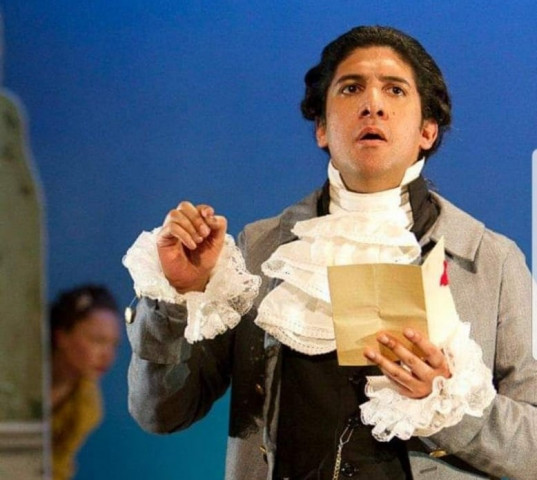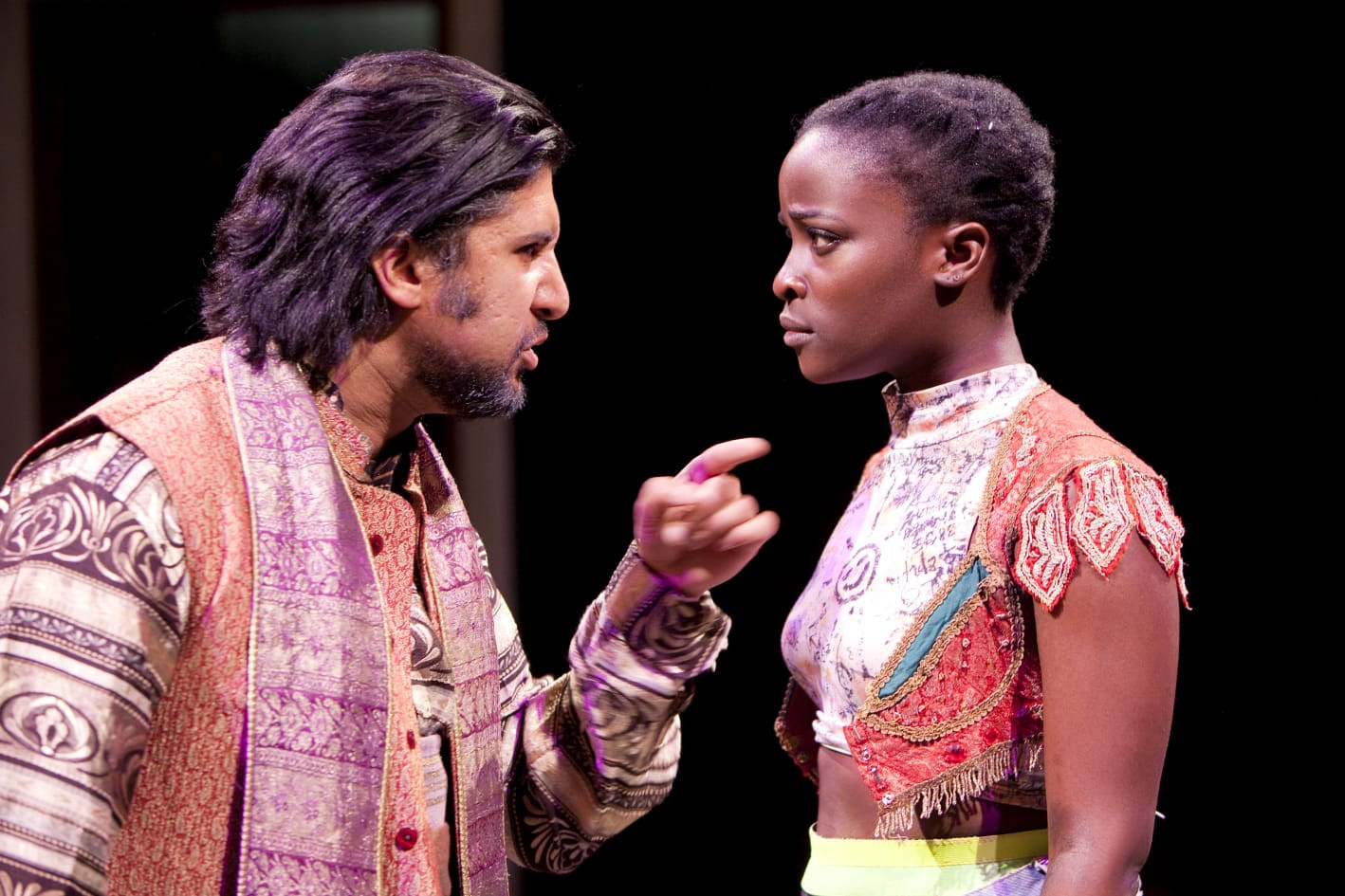Meet Umar Pasha, the Pakistani-British actor starring in 'Game of Thrones' prequel
The acting coach will be seen in two episodes of the upcoming serial 'House of Dragons'

On a cool Karachi evening, a Pakistani-British thespian and acting coach with zero social media presence, sat down in a fairly crowded coffee shop to explain why his future fandom will comprise a lot more than just students trying to master the craft of acting.
Umar Pasha, who has previously taught at the Juilliard School in New York is nowadays engaged with the National Academy of Performing Arts (Napa) and will be making his mainstream TV debut with a role in the Game of Thrones’ prequel House of Dragons. That is more talent than the best of Lannisters and Starks combined, and the fact that he is right here, in his country of origin, makes his career arc even more fascinating.
 Umar Pasha (Capulet) and Vanessa Babyre (Tybalt) in Romeo and Juliet (National Theatre)/Photo credits: Ludovc Dec Cognets
Umar Pasha (Capulet) and Vanessa Babyre (Tybalt) in Romeo and Juliet (National Theatre)/Photo credits: Ludovc Dec Cognets
Pasha was supposed to tour the UK, Bangladesh, Pakistan and India as part of Jean-Claude Carrier’s adaptation of Mahabharata but the pandemic spoiled the show, so he just came to Pakistan to connect with friends and family. While he was here, renowned theatre director Jatinder Verma connected him with the ex-president of Napa, Zia Mohiyeddin, who offered him a position to teach while he stayed here. “I was surprised I didn't know Zia Sahab or Khalid Ahmed before he [Jatinder] introduced us. It’s a shame,” said a rather mystified Pasha. “He welcomed me with open arms despite the communication barrier I bring and gave me the freedom to teach in ways I deem correct.”
White man at home
While being grateful about how he found his way here, even under unprecedented circumstances, Pasha went on about his regrets regarding detachment from his culture. “If Covid didn’t happen, I wouldn't be here at all. I had not connected to my roots at all apart from my brown body and Punjabi andi hai thodi (I know a little Punjabi). Here I become the exotic guy. It’s a shame. I felt like a gora (white man) in my own country but it’s changing now.”
Starting out as an acting coach, Pasha also made his debut in direction. His class performed an Urdu translated adaptation of Uncle Vanya by Anton Chekhov. Among the challenges he faces here, specifically in his theatre class at Napa, Pasha lamented about how students are never on time. “Being punctual seems like a weak, less practised trait around here,” he said recalling the many times he has had to wait for his students to start rehearsals.
Other than that, Pasha faces difficulty in conveying his thoughts with clarity because of the language barrier. “There were times where I couldn’t explain what I wanted from my student actors. I would then settle on the work they would produce, at a loss of words to share what I expected. However, now that I'm here indefinitely, I’m working on my communication.”
Remembering Verma’s praise for the acting skills of Indians and Pakistanis, Pasha couldn’t disagree, “Since there isn’t a prominent theatre industry, acting is a forbidden career and those who pursue it completely thrust themselves into it and I’m a witness.” However, he identified yet another reason for their passionate expression. “I believe the culture supports repression of emotions and they reckon the stage and their art as a channel to let go of their baggage.”
Working in the local industry for merely four months, Pasha is of the opinion that the theatre culture, however minuscule, needs a progressive mindset. He believes that a meaningful purpose isn't deemed necessary in the plays produced in Pakistan, but there’s potential, and he wants to contribute to the growth of local theatre with his experience. Expressing his desire to bring a “European flavour” to the industry, Pasha couldn’t help but take his statement back when questioned about it, realising it to be a coloniser’s trick.
Be the throne and kingdom
Being an actor, it is unlikely to not have a social media presence, especially in this digital age. However, Pasha disagrees and holds contempt for the platforms, saying they “breed narcissism.” His lifestyle in London never warranted a social media presence for work purposes either. “We have agents and they forward our profiles to directors and producers. Students here could really use that sense of direction and stability too,” says Pasha.
Teaching the Stanislavski method of acting, Pasha will be directing Pomona, a sinister thriller by Alistair McDowall, in the coming months as a commercial play. He also wishes to do an all-female Shakespeare production here.
The theatre artist is now switching to small and big screen productions as well. However, his heart lies in live performances only. He will be next seen in two episodes of the much-awaited GoT prequel, House of Dragons, which he surprisingly wasn’t particularly thrilled about. “I do not care for television series as such. Just like Harry Potter, it is a fashion trend, there’s no base to its popularity, people just follow in herds and masses, even if the content is poison,” elaborated Pasha, making no effort to mince his words.
His coldness towards recorded shows or films comes off as rather strange but he was grateful for the impact GoT will have on his portfolio. He is also in contact with Pakistani-British actor Riz Ahmed for a possible future project.
As a thespian, he has mostly performed as villains in popular Shakespearan plays like Macbeth, Titus Andronicus, Julius Caesar, Macbeth, Romeo and Juliet, among many others. His Broadway show The Kite Runner, based on the best-selling novel by Khalid Hosseini, in which he plays the Taliban leader Kamal, ran for about two years, touring all over the world.
Have something to add to the story? Share it in the comments below.



















COMMENTS
Comments are moderated and generally will be posted if they are on-topic and not abusive.
For more information, please see our Comments FAQ